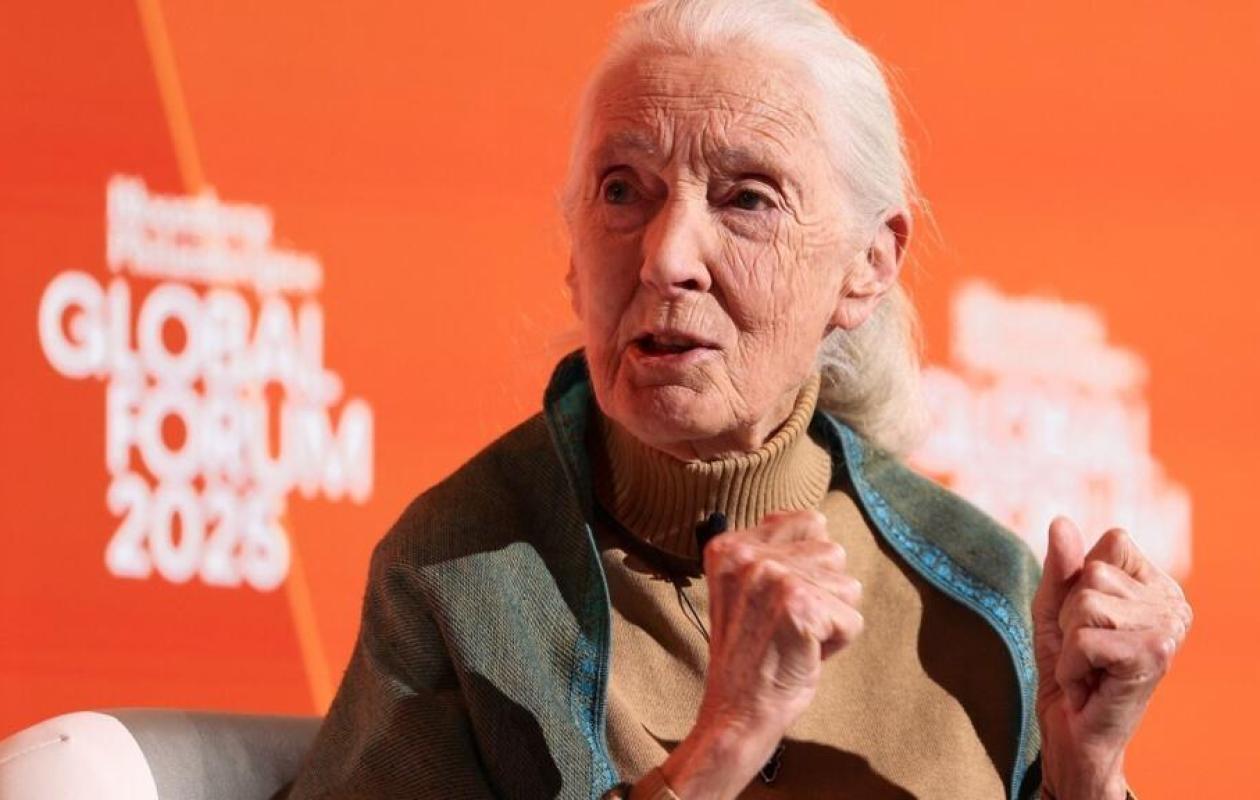
Mort de Jane Goodall, la pionnière qui a révolutionné notre compréhension des chimpanzés
By being the first to discover that some apes used tools, the British anthropologist and primatologist revolutionized our view of animals. This tireless defender of biodiversity died at the age of 91 " of natural causes ," her institute announced on Wednesday, October 1, 2025. She was in California as part of a speaking tour of the United States.
Invited to speak at UNESCO in 2024, the famous primatologist began her speech by " speaking " the language of chimpanzees: a monkey cry launched to warn of the collapse of biodiversity and remind us that everything is linked. " I received a gift "When I speak, people listen. And to people who lose hope, I seem to be able to give more hope ," she declared on RFI , on the sidelines of this event, to justify her inexhaustible commitment to the animal cause.
Nothing predestined this young Englishwoman to become an environmental icon, except for her early passion for animals. From a young age, she spent hours observing earthworms, the family dog, or chickens to understand where their eggs come from...
Her meeting in 1957 with Dr. Louis Leakey, an anthropologist and paleontologist, while visiting a friend in Kenya, marked a turning point. With no scientific training, the twenty-year-old British woman moved to the Lake Tanganyika region of Tanzania to document, through binoculars, the behavior of the great apes of the Torrent de Gombe National Park. Through patience, she was accepted, and one day in 1960, the young woman observed a chimpanzee using a twig from which it removed the leaves to drive termites out of their burrow. This discovery shook the way we viewed primates and revolutionized our definition of what constitutes a human. Until then, this skill was thought to be reserved exclusively for human beings.
Her unconventional methods drew criticism. For example, she gave chimpanzees first names rather than numbers like laboratory animals. This didn't stop her from earning a doctorate in ethology from Cambridge University. She also proved that these animals were not vegetarians as previously thought, but omnivores, that they communicated via a language containing dozens of different sounds, and that they were capable of engaging in bloody wars.
Magazines devoted stories to her, and the entire world discovered the primatologist with the blond ponytail. A rare woman, alongside gorilla specialist Dian Fossey, killed in Rwanda in 1985, in a very male-dominated scientific world, she also contributed to further opening up the world of science.
It is through the Jane Goodall Institute, founded in 1977 and now present in over 100 countries, that she continues her work outside the jungle. By promoting research, education, and wildlife protection, the organization also works to restore nature to the place it has been stolen from. In sanctuaries in Africa, it welcomes orphaned monkeys whose mothers were victims of hunting, and who would otherwise be doomed.
Aware that the preservation of wildlife cannot be achieved without the economic development of local populations, particularly in Africa, where the equatorial forest has been decimated for cocoa and timber cultivation, it is working towards this goal. In seven countries on the continent, the Tacare program provides scholarships to children and microcredits to the poorest to give them the opportunity to start their own businesses and secure their livelihoods without destroying biodiversity.
She often reminded us: " We are all part of the animal world. And we all depend on an ecosystem made up of complex interactions between animal and plant species. Each with its own role. It's like a magnificent tapestry. Every time a plant or an animal disappears, it's like a thread that's pulled. And if you pull too much, the tapestry will end up in tatters. "
A committed vegetarian since her youth, she warned of the ravages of intensive farming, not only for animal suffering, but also for its impact on deforestation, pollution and the climate.
In 70 years spent in the service of nature and living things, the scientist has received dozens of distinctions and has been nominated several times for the Nobel Peace Prize.
As she promised, Jane Goodall defended endangered biodiversity to the very end. In recent decades, she had left the African jungle behind, but traveled tirelessly around the world, a tireless " messenger of peace " for the United Nations. At over 90 years old, she continued to inspire a whole generation of climate activists. A youth to whom she wanted to convey the message that " every individual matters, every individual has a role to play and can make a difference. Because," she repeated, "if thousands of people do a small positive thing for others, then in the end it will make a huge difference ."
Commentaires (3)
Participer à la Discussion
Règles de la communauté :
💡 Astuce : Utilisez des emojis depuis votre téléphone ou le module emoji ci-dessous. Cliquez sur GIF pour ajouter un GIF animé. Collez un lien X/Twitter, TikTok ou Instagram pour l'afficher automatiquement.